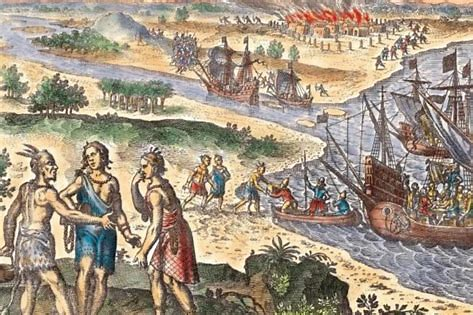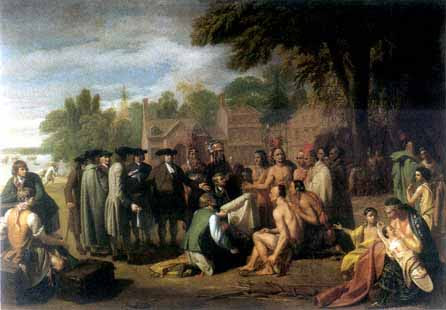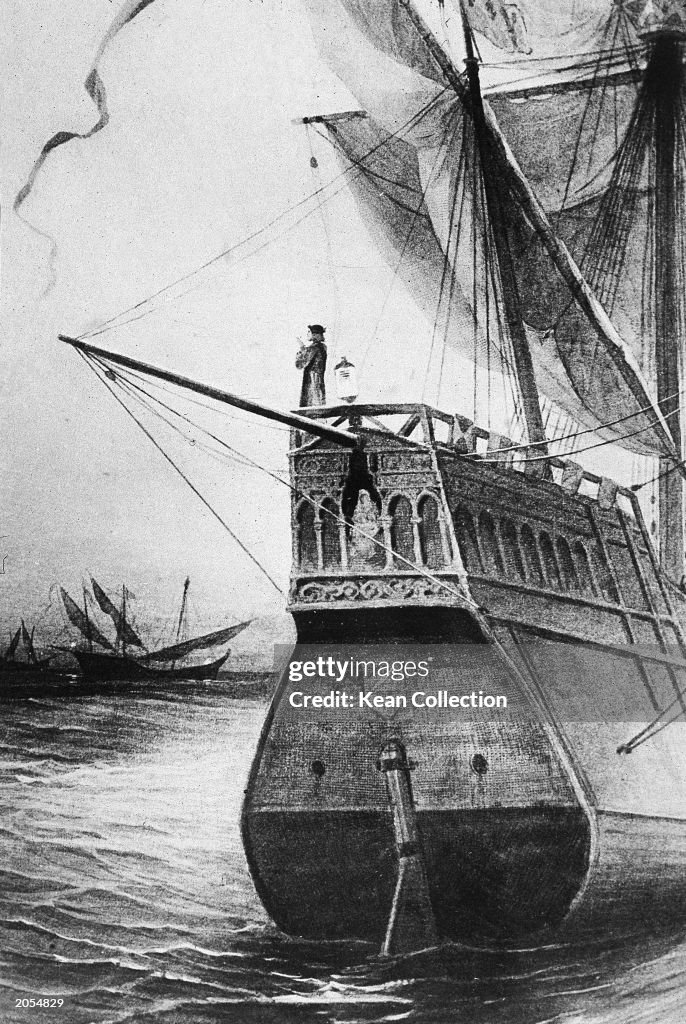Few people pay much attention to Columbus Day. New York City has a big parade which is more a celebration of Italian American heritage then the discovery of America. It used to be an important patriotic holiday, not as significant as the Fourth of July, but notable nevertheless. After all, Columbus did discover America, confirmed that the world was indeed round, and most importantly that the new continent was open for business.
Once Columbus reported back that a new and unbelievable rich land awaited, the era of European colonization of America began. Early American history is complicated but clear. The Spanish, French, and English laid their claims to American territory, fought wars over water, land, and trading rights, and settled the East, Gulf, and Pacific Coasts.The story of the Old Southwest – Mississippi, Alabama, Tennessee and Florida –lands contested by European powers from the arrival of Hernando de Soto in 1540, to the late 1700s and the Civil War, is a particularly illustrative tale. It is a tale of how the American Republic was made possible by European colonization, deft international politics; military supremacy and favorable Indian alliances and treaties; environmental factors; and rugged individualism, entrepreneurial spirit, and the desire for wealth and position.
The social, political, and economic environment which the white settlers of the Old Southwest found was complex and ever-changing. What was known as West Florida – most of the Florida Panhandle and parts of Louisiana, Alabama, and Mississippi – shifted hands many times, often back and forth between French, Spanish, British, and finally American interests. New Orleans was first settled by France which later ceded it to Spain after the French and Indian War. Then, largely because of European wars, conflicts, and treaties, Spain ruled for only 25 years, then returned it to France.
Finally France sold New Orleans and the vast area of the Louisiana Purchase to the United States.
The story of the Old Southwest is a story of partnerships as well as conflict – alliances between nations, between the US and the Indians, among Indian tribes; and between private sector interests and government.
The rest of early American history was no different. The first 16th century English settlements in Virginia which grew quickly into important agricultural and trading centers. Cultivation of tobacco, rice, and later cotton by English colonists generated wealth, the growth of Euro-American culture, and a sophisticated system of agriculture and international trade.

The English settlements of New England in lands far less generous than those of the South, turned to whaling, fishing, and industry. The Dutch colonized what is now lower New York State and Manhattan, and again new Americans built on and benefited from their investments.
The point is that there is most definitely a reason to acknowledge if not celebrate, the discovery of the New World by Columbus. Yes, he found it by accident on his way to India; and yes there may have been earlier Viking and Norse contacts; but there is no way to diminish the importance of Columbus’ discovery. Whether or not there were earlier settlements or whether it was only a matter of time before explorers other than Columbus crossed the Atlantic, history has recorded his voyages as the first to America and instrumental in opening up the continent to European civilization.

European settlers did not look at these natives as partners and collaborators but obstructionists at best and enemies at worst. Given the profoundly Catholic culture of Spain in the 15th century and the prevailing social stratification of humanity into superior and inferior races so distinguished by levels of European-style civilization, such attitudes were not surprising.
Spanish conquistadors and accompanying clergy had only two things in mind – finding legendary treasure to enrich Spain and converting the savages they encountered on their mission. English and Dutch explorers and colonists had exactly the same goals and principles in mind for the same reasons.
Why America has celebrated Columbus Day and not any Native American Day is clear. All that America is today is European – our systems of law, economics, finance, agriculture, and urban development all come from the Old World. Our early art, music, and literature was derived from Europe. The Bill of Rights, the Declaration of Independence, and the Constitution were all based on principles of the 18th century English and Scottish Enlightenment. Our religions came from Rome, Germany, England, and Scandinavia.

Columbus Day is really European Day, for Columbus’ discovery signaled the first arrival of European civilization on the continent. We owe everything to the Spanish, the French, the Dutch, and especially the British; and little to the Indians.
Their native ways, although in many ways reflective of all cultures – similar social groupings, religious expression, territorialism, warfare, slavery, music, art, and dance – were primitive by European standards. In European eyes they were naked, idolatrous, pagan savages living a subsistence existence with little to offer.
Revisionist historians and progressive activists have attempted to devalue the importance of Columbus and the European colonization of America. Europeans, in their view, committed genocide on a par with the Nazis. They were intent on eliminating native Americans from what they arrogantly considered their land, and had no moral compunctions about doing so. The colonization and development of America is nothing but a story of depredation, exploitation, and mass murder. Only by celebrating the Native American and by eliminating any reference to European conquest, can history be righted and told from an indigenous and therefore more legitimate perspective.
It is wrong to attempt to demean or even expunge Columbus, De Soto, Pizarro, Sir Walter Raleigh, and John Smith. It is not only historical revisionism at its worst, but a denial of the very Euro-American culture which has defined us for over 400 years.
These same progressive revisionists insist that a celebration of native American culture and a dismissal of the contributions of Columbus and those Europeans who followed him is important because of America’s current cultural pluralism. Hispanics are after all descendants of native Americans (and of course Spanish conquistadors); black Americans are African by heritage and still by culture; and the increasing number of Asians and Arabs give lie to the idea that the United States is a European place.
This a posteriori thinking is a denial of history, historical antecedents, and the roots of culture which cannot simply be pulled up and burned as if they never existed.
Let Columbus Day stand and continue to celebrate the arrival of European culture on the continent.




No comments:
Post a Comment
Note: Only a member of this blog may post a comment.